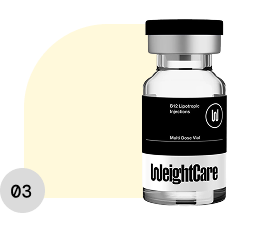Weight loss medications can be life-changing, but what happens when insurance coverage stops? The sudden financial burden or discontinuation of treatment can feel overwhelming. However, understanding your options and crafting a proactive plan can help you continue your journey to better health.
Imagine finally finding a weight loss solution that works, only to face an unexpected roadblock when your insurance company decides to stop covering it. This scenario is all too common, leaving patients scrambling for solutions. While this can be frustrating, there are alternative pathways to maintain access to treatment. Let’s explore why coverage changes happen and actionable steps you can take.
Common Reasons for Insurance Denials
Policy Exclusions and Changes
Insurance companies often revise their policies to manage costs. These updates can include removing coverage for weight loss medications deemed non-essential. Understanding these policy changes and their rationale can help you anticipate and respond effectively.
Cost-Cutting Measures by Insurance Companies
Health insurance providers are under constant pressure to reduce expenses. Weight loss medications are frequently categorized as elective treatments, making them prime targets for exclusion when budgets tighten.
Miscommunication or Billing Errors
Sometimes, denials are due to clerical errors or misunderstandings in billing codes. Double-checking with your provider and insurance company might reveal that coverage is still possible with proper documentation.
Impact of Losing Insurance Coverage for Weight Loss Medications
Financial Strain on Patients
Weight loss medications are often expensive, with monthly costs running into hundreds of dollars. Losing insurance coverage can force patients to choose between their health and financial stability, creating significant stress.
Health Implications and Risks of Discontinuing Treatment
Abruptly stopping weight loss medications can lead to weight regain and associated health risks such as diabetes, hypertension, and cardiovascular issues. This can undo months or years of progress and cause psychological distress.
Exploring Alternatives to Insurance Coverage
Patient Assistance Programs (PAPs)
Many pharmaceutical companies offer patient assistance programs that provide free or discounted medications for eligible individuals. Researching these programs can help alleviate financial burdens.
.Manufacturer Discounts and Coupons
Manufacturers often provide coupons or savings cards for their medications. These discounts can significantly reduce out-of-pocket costs, especially for new patients or those paying cash.
Generic or Alternative Medications
Discuss with your healthcare provider whether a generic or alternative medication might offer similar benefits at a lower cost. Many generic options can be equally effective while being more affordable.
Strategies to Appeal Insurance Denials
Understanding Your Policy Terms
Carefully review your insurance policy to understand the coverage details and reasons for denial. This knowledge is crucial for building a strong case for appeal.
Gathering Supporting Medical Evidence
Work with your doctor to compile medical records, treatment plans, and letters explaining the necessity of your medication. Comprehensive documentation strengthens your appeal.
Writing a Convincing Appeal Letter
Draft a clear, professional, and persuasive appeal letter outlining your case. Include supporting evidence, a summary of your health journey, and why coverage is vital for your wellbeing.
Affordable Options Without Insurance
Online Pharmacies and Mail-Order Medications
Online pharmacies often provide competitive pricing for weight loss medications. Ensure you use reputable sources to avoid counterfeit products and protect your health.
Weight Loss Clinics Offering Subscription Models
Some weight loss clinics offer subscription-based plans that include medication, counseling, and ongoing support for a fixed monthly fee, making treatment more manageable.
Leveraging Lifestyle Changes as a Complementary Approach
Importance of Diet and Exercise
While medications play a critical role, incorporating healthy eating and regular physical activity is essential. These habits can improve outcomes and reduce dependence on medications over time.
Behavioral Therapy for Long-Term Success
Behavioral therapy can address the psychological aspects of weight management, equipping you with tools to sustain progress and cope with challenges.
Consulting with Healthcare Providers for Guidance
Exploring Alternate Treatment Plans
Your healthcare provider can suggest alternative medications or therapies tailored to your needs and budget.
Open Communication About Financial Concerns
Be transparent with your doctor about financial constraints. They may have insights or access to programs that can help reduce costs.
Future of Weight Loss Medications and Coverage
Policy Trends and Legislative Advocacy
The demand for obesity treatments is rising, leading to advocacy for better insurance coverage. Staying informed about policy changes can help you navigate future challenges.
Growing Demand for Obesity Treatments
The medical community increasingly recognizes obesity as a chronic condition requiring long-term management. This shift could encourage more inclusive coverage in the future.
Success Stories: Thriving Without Insurance Support
Real-Life Experiences of Patients
Many individuals have successfully managed weight loss without insurance. Their stories can provide inspiration, practical tips, and motivation to stay committed
Lessons and Motivation for Others
Hearing about others’ perseverance can remind you that solutions exist, even in the face of setbacks.
Financial Planning Tips for Ongoing Medication Needs
Budgeting for Health Expenses
Create a dedicated budget for health-related costs. Prioritizing medication expenses can prevent financial surprises and ensure continuity of treatment.
Exploring Health Savings Accounts (HSAs)
HSAs allow you to set aside pre-tax dollars for medical expenses, reducing your overall financial burden.
Frequently Asked Questions
-
Can I switch to a different insurance plan for coverage?
Yes, during open enrollment periods, you can explore plans that offer weight loss medication coverage. Compare policies carefully before switching. -
Are over-the-counter weight loss medications effective?
While some OTC medications can aid weight loss, they are typically less effective than prescription options. Always consult your doctor before trying them. -
What should I include in my insurance appeal?
Include medical records, a letter from your doctor, and a detailed explanation of why the medication is essential for your health. -
How do patient assistance programs work?
These programs are often offered by manufacturers to help uninsured or underinsured patients access medications at reduced costs. -
Is tirzepatide affordable without insurance?
While expensive, options like PAPs or online pharmacies may make tirzepatide more accessible. -
Are there natural alternatives to weight loss medications?
Diet, exercise, and behavioral therapy can complement or, in some cases, replace medications. Consult a healthcare professional for tailored advice.



